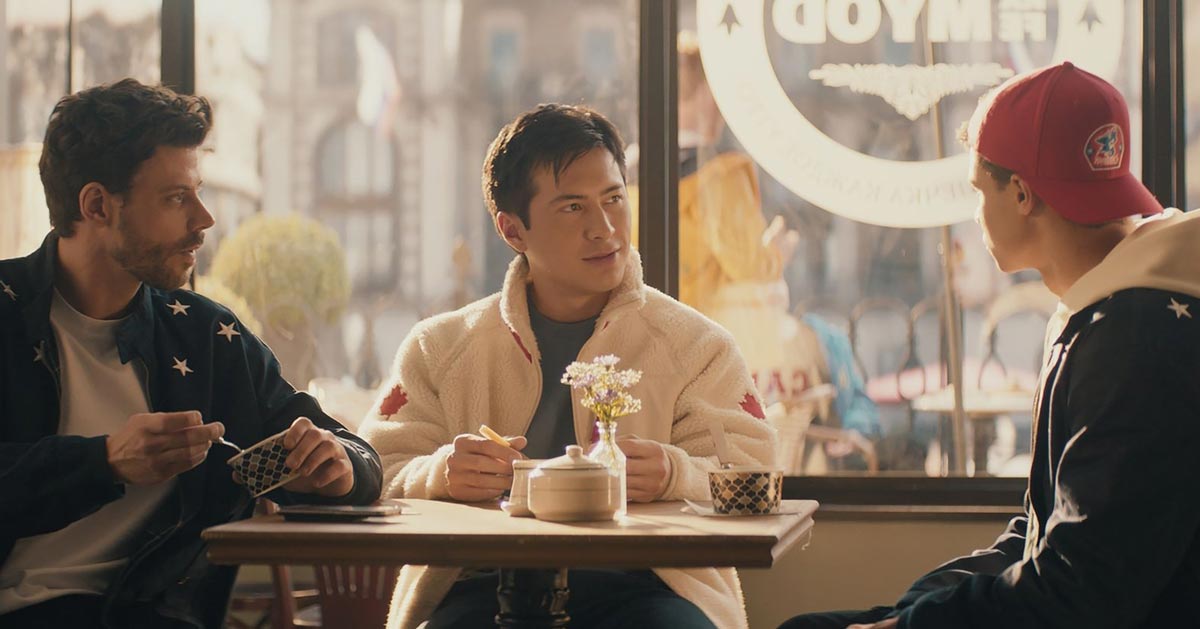Authors John Green, Jodi Picoult, and Angie Thomas have three things in common: They’re all majorly successful writers, their books have been banned in states across the country, and now, they’re joining a lawsuit to fight back.

The trio joins other authors like Julia Alvarez and Laurie Halse Anderson, as well as the Authors Guild, and publishers Penguin Random House, Hachette Book Group, HarperCollins Publishers, Macmillan Publishers, Simon & Schuster, and Sourcebooks in filing a lawsuit challenging Florida House Bill 1069. (Two students and two parents in Florida have also joined the lawsuit.)
In 2022, Florida Governor Ron DeSantis signed the bill into law, giving parents the ability to approve (or disapprove) what books schools could have in their libraries.
This law would require Florida’s public schools to create a searchable list of all the materials in their libraries, as well as provide notice when adding new books. Its broad provisions have led to a swath of book challenges since it went into effect in July of last year.
Those challenges have resulted in the removal of hundreds of books, including best-sellers like Thomas’s “The Hate U Give,” Picoult’s “19 Minutes,” and Green’s “Looking for Alaska.”
Florida book bans have also included titles of classic novels and nonfiction reads like “Brave New World” by Aldous Huxley, “The Adventures of Tom Sawyer” by Mark Twain, “The Diary of a Young Girl” by Anne Frank, and many more.
A recent PEN America study found that 72% of book objections in the U.S. came from Florida in the first half of 2024.

With all of this in mind, the lawsuit argues: Florida has a censorship problem.
“Censorship, in the form of book bans, is a direct threat to democracy and our constitutional rights, as well as our mission to create books for everyone,” Penguin Random House’s website states.
“That’s why we’re defending books in court.”
The lawsuit, which was filed on Thursday, August 29, alleges that the law’s book removal requirements — which require schools to remove books that contain anything that can be construed as “sexual conduct,” — are unconstitutional, positing that it violates a Supreme Court decision from 1973.
This decision — Miller v. California — found that media containing obscene material should be reviewed for “literary, artistic, political, and scientific value,” in their entirety.
Green, whose blockbuster books “Looking for Alaska” and “The Fault in Our Stars,” have been challenged across the country for their inclusion of sexual content, has called these challenges “heartbreaking” and “political theater.”
The author went toe to toe with officials in his home state of Indiana last year when the aforementioned titles were moved from the “young adult” to “adult” sections of public libraries.
“I believe very strongly in the freedom of expression and in teenagers’ rights to read, and I feel very strongly that other parents shouldn’t have any say in what my kids get to read,” he told The New York Times last August. “As long as that fight goes on, I feel obligated to lend my voice to it.”
Green joins the other plaintiffs in the lawsuit who hope to “restore the discretion of trained educators” in deciding what reading materials should be included in school libraries.

“As publishers dedicated to protecting freedom of expression and the right to read, the rise in book bans across the country continues to demand our collective action,” the publishers said in a joint statement.
“Fighting unconstitutional legislation in Florida and across the country is an urgent priority. We are unwavering in our support for educators, librarians, students, authors, readers — everyone deserves access to books and stories that show different perspectives and viewpoints.”
Indeed, Penguin Random House and associates has made this priority clear, also filing a lawsuit fighting book bans in Iowa last November.
Green, Picoult, and Halse Anderson are also part of the lawsuit against the state of Iowa. They are joined by author Malinda Lo, the Iowa State Education Association, three teachers, a high school student, and a parent.
“Our mission of connecting authors and their stories to readers around the world contributes to the free flow of ideas and perspectives that is a hallmark of American Democracy — and we will always stand by it,” Nihar Malaviya, CEO of Penguin Random House, said in a statement at the time of the Iowa lawsuit.
“We know that not every book we publish will be for every reader, but we must protect the right for all Americans, including students, parents, caregivers, teachers, and librarians to have equitable access to books, and to continue to decide what they read,” Malaviya continued.
In December 2023, a federal judge granted the publishers’ request to temporarily block two key provisions of the Iowa bill, noting that it likely violated the First Amendment.
Advocates hope for similar success in their battle for the sanctity of books in Florida.
“Florida HB 1069’s complex and overbroad provisions have created chaos and turmoil across the state, resulting in thousands of historic and modern classics — works we are proud to publish — being unlawfully labeled obscene and removed from shelves,” Dan Novak, Penguin Random House’s Associate General Counsel, said in a statement.
Novak went on to say that students “need access” to a wide range of reading materials that reflect diverse “human experiences.”
The authors in the lawsuit agreed.
“We share our stories in hopes that they will resonate with readers, help them feel understood, and introduce them to new perspectives,” the author plaintiffs said in a joint statement.
“Laws like HB 1069 in Florida deprive students of this opportunity and must be stopped.”
Mary Rasenberger, CEO of the Authors Guild, also added that book bans have a negative impact on authors themselves, forcing creative limits on what they choose to write about, and damaging their professional reputations.
“Book bans censor authors’ voices, negating and silencing their lived experience and stories,” Rasenberger said.
“Yet, these same books have edified young people for decades, expanding worlds and fostering self-esteem and empathy for others. We all lose out when authors’ truths are censored.”
Header images courtesy of John Green, Rainer Hosch, and Imani Khayyam



